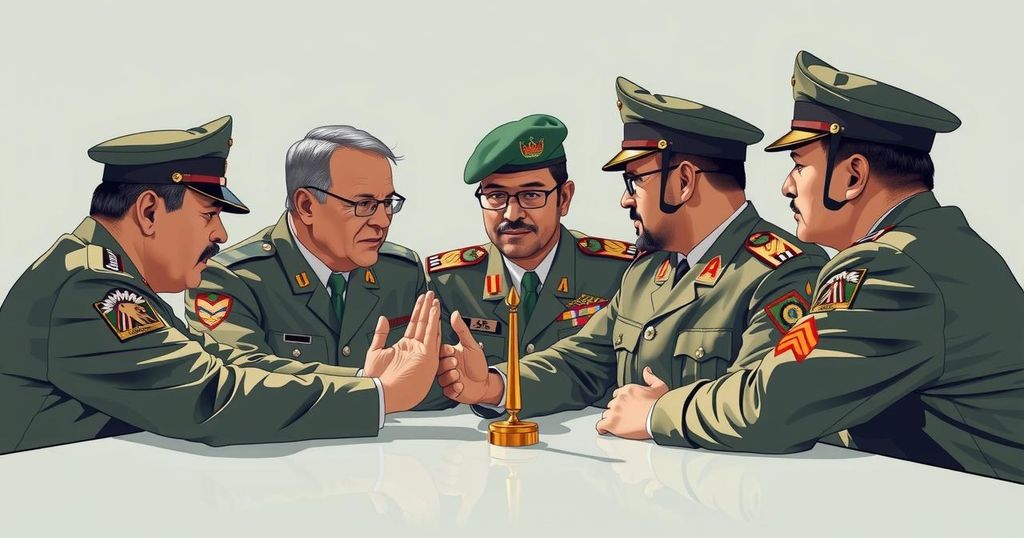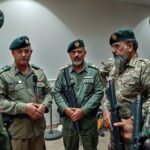Civil-Military Cooperation Paves the Way for Counterterrorism Efforts in Pakistan
Army Chief General Syed Asim Munir convened with political leaders in Peshawar to unite in the fight against terrorism, emphasizing collaboration and transparency in military operations. The meeting stressed support for the armed forces, plans to enhance local police capabilities, and the importance of maintaining ties with Afghan authorities to address terrorism effectively. The collective stance aims to foster regional peace and establish a robust framework for national security.
In a significant meeting held in Peshawar, Army Chief General Syed Asim Munir engaged political leaders from various parties to forge a unified stance against terrorism. The gathering, supported by K-P Chief Minister Ali Amin Gandapur, emphasized political commitment to stand alongside the military forces in combating the pervasive threat posed by terrorism. A key point of discussion was the assurance from military leadership that operations would not occur without consultation with political leaders, fostering transparency in strategies targeting extremist elements.
The discussions alleviated concerns regarding the provincial government’s role, clarifying that while no major military operations are currently planned, Intelligence-Based Operations (IBOs) will persist to ensure security. There was a mutual acknowledgment of the need for a collective front transcending political affiliations, aimed at countering the extremist ideologies that threaten national stability. As concerns grow over the regrouping of terrorist factions, plans to enhance the capabilities of the provincial police force and the effective implementation of the National Action Plan were prioritized, ensuring an adaptive response to evolving security dynamics.
Additionally, political leaders expressed the importance of maintaining open lines of communication with the Afghan authorities, amidst the ongoing challenges posed by the Taliban. There exists a recognition that the rise in terrorism within Pakistan correlates with the insufficient action taken against terrorist networks in Afghanistan, indicating a pressing requirement for Kabul to fulfill its commitments to eradicate these threats. This cooperation marks a pivotal shift towards promoting regional peace and stability, as it holds potential for strengthening political unity and developing robust policy measures.
The context of the article is rooted in the current security challenges faced by Pakistan, particularly from terrorist organizations that have gained traction due to instability in neighboring regions such as Afghanistan. The military-civil cooperation is becoming increasingly crucial in developing effective strategies to mitigate these threats and ensure national security. The National Action Plan serves as a framework to address terrorism and bolster the law enforcement agencies, highlighting the importance of a coordinated response to enhance overall safety in the region.
The meeting between civil and military leadership in Peshawar symbolizes a critical step toward establishing a synchronized approach to combat terrorism in Pakistan. With a commitment to unity and cooperation, this partnership aims to address the complexities of modern terrorist threats and underscores the necessity for regional collaboration. The proactive measures decided upon during the discussions could pave the way for a more stable political environment and improved security measures across the nation.
Original Source: tribune.com.pk








Post Comment